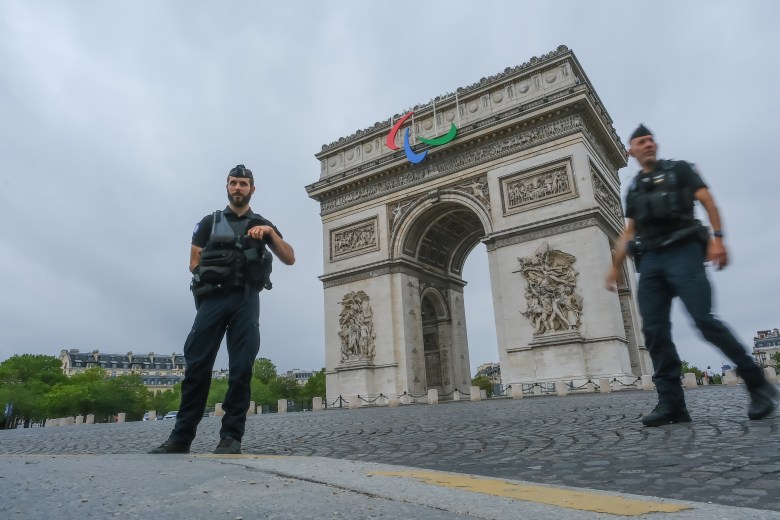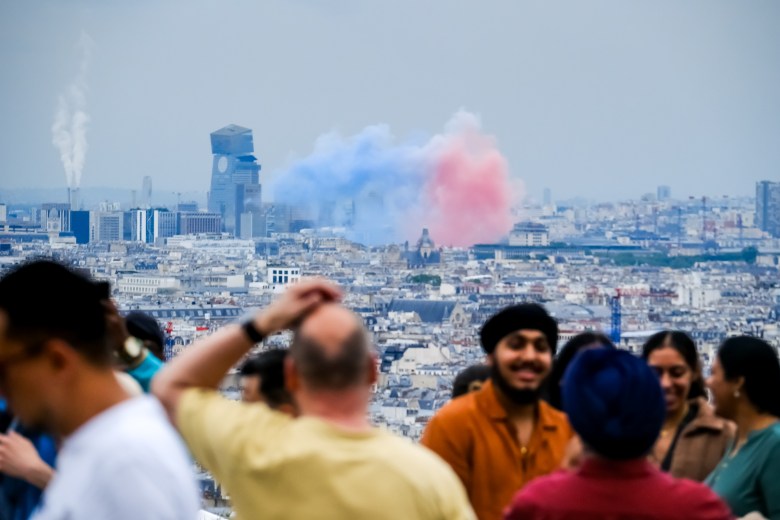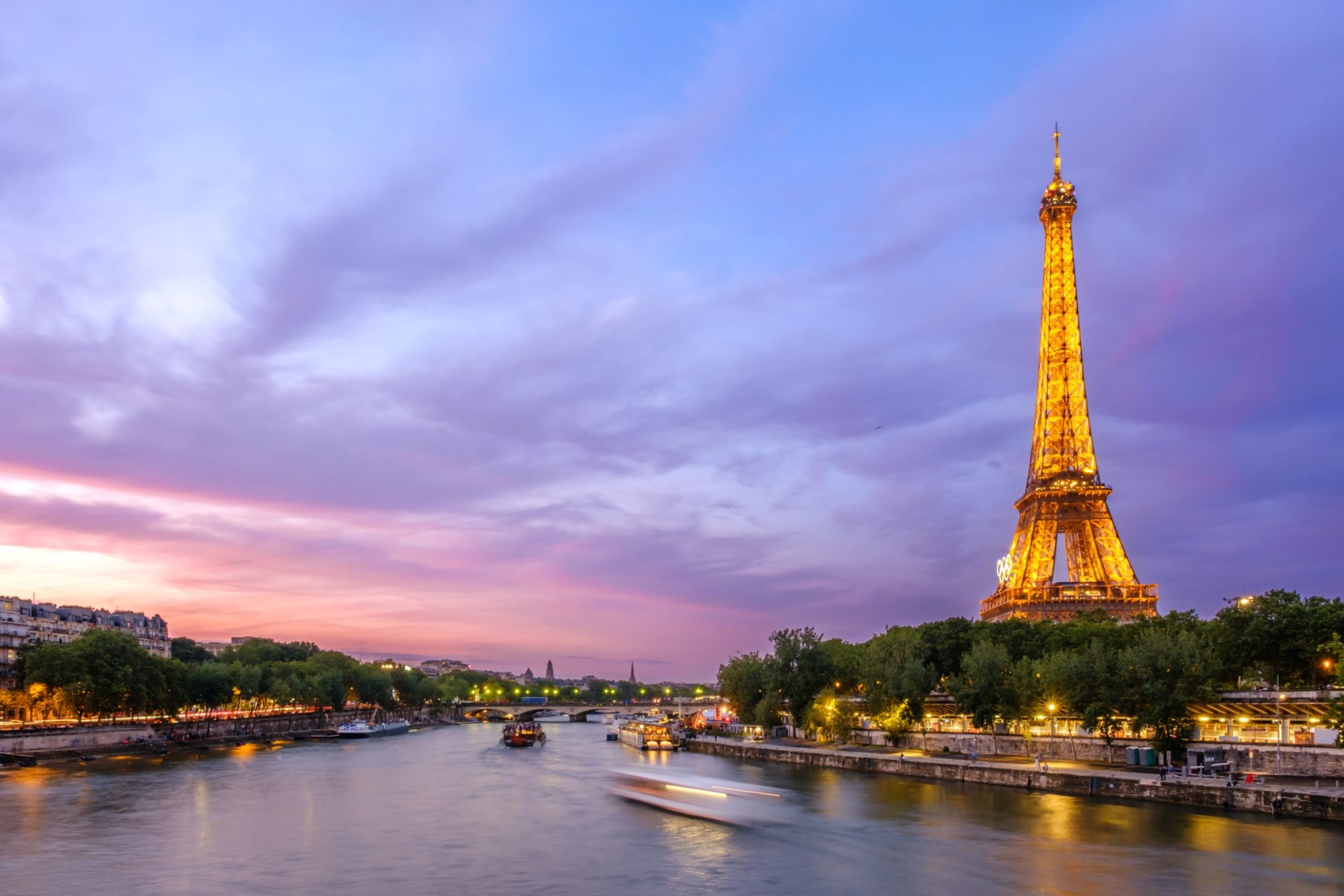In mid-June, Don Rogers, The Park Record’s editor and publisher, and owners Matthew and Tatiana Prince gave me the green light to travel to Paris with the specific mission of covering the 2034 Winter Games announcement.
This would be my 11th Olympics, having spent 45 years in TV news, 28 of those with NBC News. Don and the Princes shared my belief that this event needed to be covered for the Wasatch Back. The second iteration of the Winter Olympics in Northern Utah would be a big deal to our community. Soldier Hollow’s impact in Wasatch County to Park City and to Snowbasin would be significant.
Small towns always feel the biggest effects of an Olympics, even if it is just a portion of the venues. By their very size, big cities can absorb the traffic, the intense security measures, the buildup of the infrastructure, the influx of fans, corporate sponsors, organizers and media companies. The Park City ridge is a natural home for so many Olympic venues — why did it take 22 years for the decision to return?
On Monday, July 22, much of the bid committee and many Olympic donors boarded Delta flight 2034. Yup, there was a flight number change to match the occasion. Salt Lake Airport held a send-off event where Gov. Spencer Cox, Salt Lake City Mayor Erin Mendenhall and bid committee CEO Fraser Bullock obliged my request for a proper departure photo on the tarmac with the plane in the background adorned with Olympic logos.
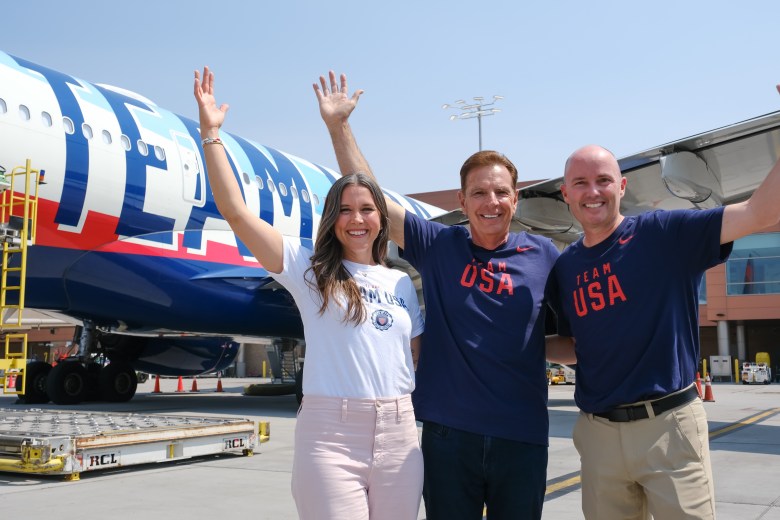
We arrived in Paris Tuesday morning and quickly dashed off to a reception hosted by U.S. Ambassador to France Denise Campbell Bauer. There were 150+ supporters of the bid, most from Utah, attending in the ornate, 17th century hotel near the embassy.
It would be a silly understatement to say the crowd was amped up for the possibility that after a good night’s sleep, the International Olympic Committee would have made the decision to have the winter Olympics return to northern Utah.
Wednesday morning, July 24, came quickly after the 10-hour, Salt Lake-to-Paris flight. The Utah delegation were dressed in snappy Olympic uniforms and took their seats in the large auditorium and listened to the 2030 French Alps Winter Olympic proposal. The IOC members quickly approved the bid. French President Emmanuel Macron served as the chief cheerleader for the enthusiastic French delegation, which meant his country will host two Olympics within six years.
Next up, the Utah delegation presented a polished and impassioned presentation to the IOC members touting the success of the 2002 games, the preservation of many Olympic venues as community focal points and the support of the state, the towns and the citizens.
But when it came time to open the presentation to questions from the committee members, the subject of doping took over for 45 minutes. The IOC insisted that all Olympic host organizations abide by the rules and decisions of the World Anti-doping Agency, essentially holding any bid hostage to making this commitment.
Twenty-three Chinese swimmers during the 2021 Tokyo games tested positive for banned substances, and later the athletes were deemed to be tainted by food contamination, according to the Chinese team.
This did not sit well with the U.S. Olympic team and members of Congress. The American investigation is ongoing, but Bullock and Cox were seriously between a rock and a hard place. They had to accept the terms of the contract demanding allegiance to the wishes of the World Anti-Doping Agency.
When it came time to vote on Salt Lake City hosting, 83 IOC members voted yes, six no, and six abstained. IOC President Thomas Bach read the decision at 12:20 p.m. local time, and the 200+ Utah delegation went bonkers, jumping from their seats.
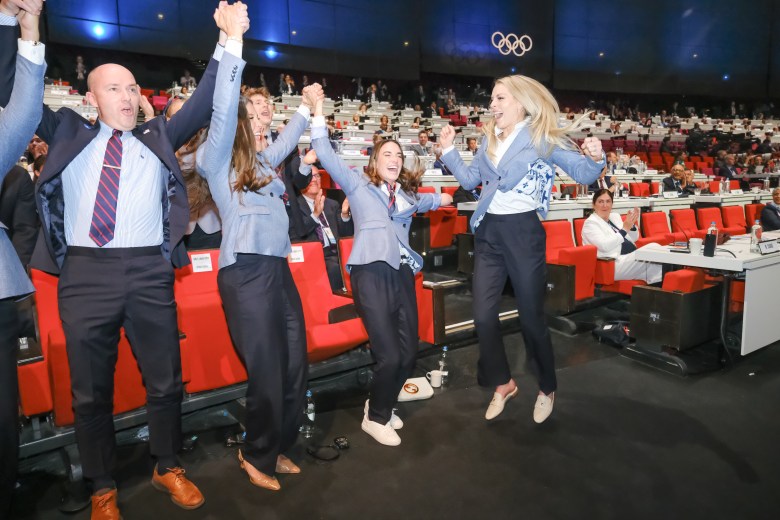
Shortly thereafter at a reception for the Utah delegation, I caught up with Park City Mayor Nann Worel.
“The suspense was there, but I couldn’t imagine that we wouldn’t get the vote,” she said.
The mayor went on to say that one of the first orders of business for the city and Summit County is to hire a person or firm to create a 10-year action plan.
“The plan would consider every aspect of the games that you can imagine,” Worel said.
Eight-time Olympic medalist and short track speed skater Apolo Ohno was a part of the delegation, too, and the 2002 Games had been his first.
“Utah has another opportunity to shine a spotlight on the greatest it has to offer, its natural beauty, the unique warmth of its people, the embrace of sport and patriotism,” he said.
Also attending in Paris was Parkite Chris Waddell, a seven-time Paralympian across two sports.
“It’s a great opportunity to do it again and to have the world come and enjoy what we have to offer,” he said.
For kids who live along the Wasatch Back, he said, “It makes it personal. It makes it a reality that those dreams can come true.”
The next day I attended a pep rally hosted by a French youth sports organization aimed at inspiring Olympic spirit in young people with Olympic aspirations. Nine Utah kids attended, and the camaraderie with kids from 36 countries was impressive.
Incoming Park City High School junior Victoria Rosales said of her first trip overseas, “I absolutely love it, when I leave I am going to be so sad, probably going to cry. I just love the diversity.”
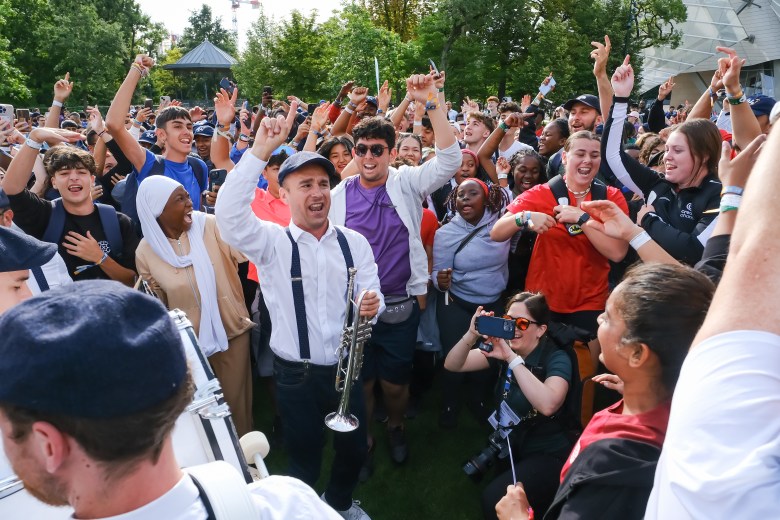
Friday was the opening day for the 33rd Olympics. The French organizing committee undertook the monstrous task of using four plus miles of the River Seine for the athlete procession. Teams floated down the river on all manner of crafts toward the Eiffel Tower.
I ventured out in the morning to get a sense of Paris on this complicated day. I started my trek at the Notre Dame Cathedral and walked to the Arc de Triomphe, and then I got as close to the Eiffel Tower as I could. The French security team had closed access to the River Seine for four or five blocks on either side to only individuals with the right credentials or an opening ceremony ticket — that did not include me. I wondered: What would this level of security look like along the Wasatch Back? The police presence was unlike any I have ever seen, and I have been to some nasty places around the globe in my career.
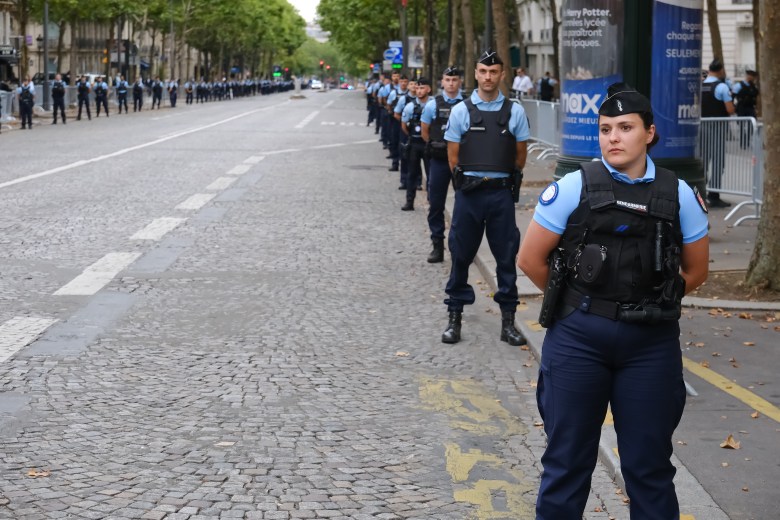
The ticket-holder lines at 3 p.m. had hundreds, if not thousands, of people just waiting to get to their seats. The gates opened at 3:30 p.m. for a ceremony that started at 7:30 p.m.
As I walked along these long lines, I was impressed by the symphony of languages and the diversity of cultures. Everyone was sporting huge smiles and an upbeat mood. I thought to myself that these people are standing in the rain, just waiting to get to their seats, and they could not be happier. Perhaps this is what the Olympics can do to your soul.
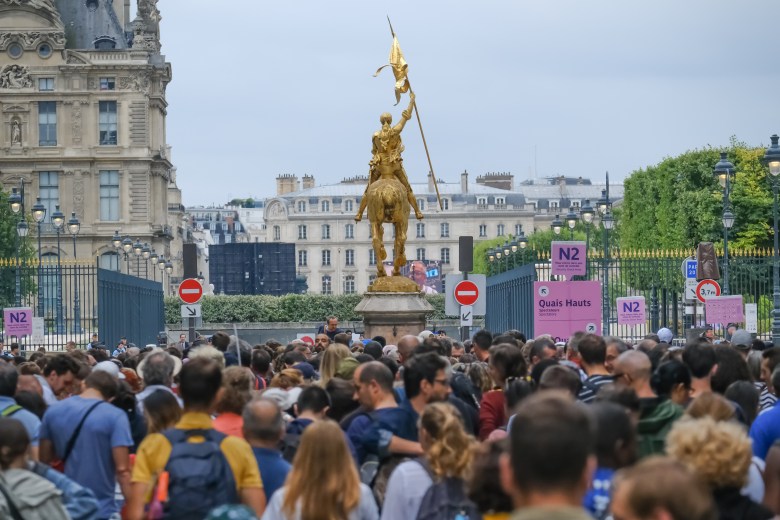
Presumably, some of the folks standing in the long lines were parents and friends of Olympic athletes. In 2021, the COVID games, families were not allowed to attend the delayed Tokyo games and were forced to watch their kids compete on television. I had a chance to meet with the family of mountain bike silver medalist Haley Batten on a rain-soaked day in Versailles. Mom Cathy, dad Patrick and brother Nash were so excited to see Haley compete in person. Cathy told me after the race about her daughter’s Olympic aspiration. “It is unreal,” she said. “Like, you know when you hear them talking about it when they’re young, and then it actually coming to fruition is unbelievable.”
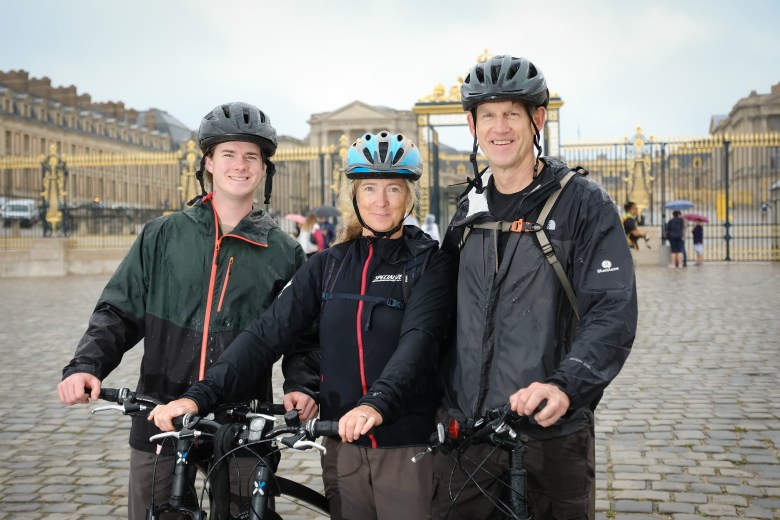
Legendary alpine skier Lindsey Vonn has made it her mission to provide housing and transportation to families of Olympic athletes for the 2034 Utah games.
No doubt, I got caught up in the uplifting energy and optimism of Paris during the Olympics, the Olympic energy is so infectious. I look forward to attending the 2028 Los Angeles Games and hope to volunteer and take my grandkids to as many events as we can possibly muster. If I am still above ground in 2034, I hope to do the same then, too.
